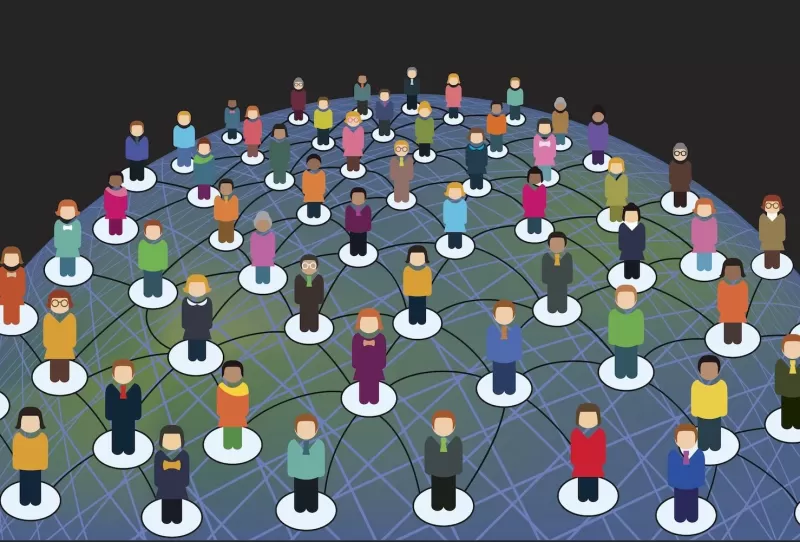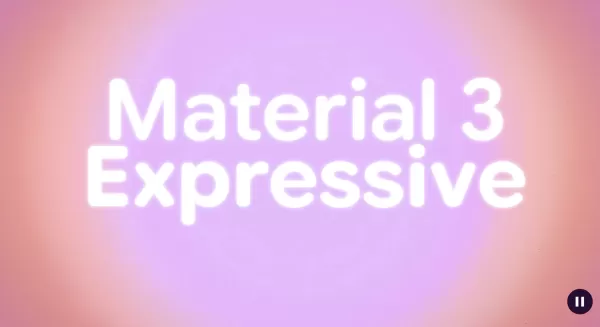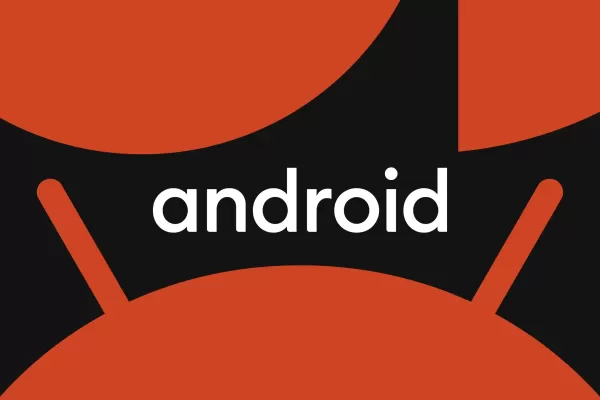Open Source Spirit: Beyond Just Licensing

The debate over what truly constitutes "open source" often hinges on the Open Source Initiative (OSI)'s stamp of approval. If software is licensed under an OSI-approved "open source" definition, it's generally considered open source. However, the discussion gets complicated when you dive into the legal definitions versus the "spirit" of open source. There's a lot of nuance in the open source versus proprietary software debate. For instance, has an "open source company" limited its project by putting core features behind a paywall? How transparent is the project's development? And how much say does the "community" really have in a project?
To many, open source isn't just about legally using and modifying code; the culture, transparency, and governance around it are crucial.
Take Android, for example. Everyone's familiar with the Google-flavored version that comes on smartphones and tablets, loaded with various apps and services. The Android Open Source Project (AOSP), released under the permissive Apache 2.0 license, is available for anyone to access, "fork," and modify for their own hardware projects. By most definitions, Android is as open source as it gets. Google has used this fact to defend against anti-competition criticisms, pointing out that Amazon has repurposed Android for its Fire devices. But, there's a catch: Google has "anti-fragmentation agreements" with hardware makers that prevent them from using forked versions of Android. Unlike projects like Kubernetes, which are managed by an independent foundation with diverse corporate and community contributors, Android is directly controlled by Google, with limited transparency over its roadmap and community input.
Luis Villa, co-founder and general counsel at Tidelift, pointed this out at the State of Open Con25 in London: "Android, in a license sense, is perhaps the most well-documented, perfectly open 'thing' that there is. All the licenses are exactly as you want them — but good luck getting a patch into that, and good luck figuring out when the next release even is."
This highlights the core of the debate: Open source can be misleading. Without true independence, those wanting to contribute to a project may lack real agency. It also raises concerns about a project's long-term viability, as seen with numerous open source companies that have changed licenses to protect their commercial interests.
Peter Zaitsev, founder of Percona, an open source database services company, emphasized this during the panel: "If you think about the practical accessibility of open source, it goes beyond the license, right? Governance is very important, because if it's a single corporation, they can change a license like 'that.'"
Dotan Horovits, open source evangelist at the Cloud Native Computing Foundation (CNCF), echoed these sentiments in a separate talk, discussing open source "turning to the dark side." He noted that issues often arise when a single-vendor project makes changes based on its own business needs. "Which begs the question, is vendor-owned open source an oxymoron?" Horovits asked. "I've been asking this question for a good few years, and in 2025 this question is more relevant than ever."
The AI factor
These debates are far from over, especially as open source becomes a focal point in the AI realm. China's DeepSeek made waves with its open source hype, and while its models are licensed under the MIT license, recognized as open source, there are still mysteries around training data and other components. That's why researchers at Hugging Face are working on an even "more open" version of DeepSeek's reasoning model.
Meta has also been vocal about its open source efforts with its Llama large language models (LLMs), though Llama isn't considered open source by most standards due to its commercial restrictions.
Luis Villa expressed concerns about the open source AI definition: "I have my quibbles and concerns about the open source AI definition, but it's really clear that what Llama is doing isn't open source."
Emily Omier, a consultant for open source businesses and host of the Business of Open Source podcast, noted that attempts to "corrupt" the meaning of "open source" reflect its power. "It goes to show how strong the brand of open source is — the fact that people are trying to corrupt it, means that people care," Omier said during the panel.
Regulatory pressures, such as the EU AI Act, which has special provisions for "free and open source" AI systems, might be driving these attempts to redefine "open source." Villa explained, "There are plenty of actors right now who, because of the brand equity [of open source] and the regulatory implications, want to change the definition, and that's terrible."
Clear parameters
While there are arguments for adding criteria that capture the "spirit" of open source, sticking to clear parameters defined by a license keeps things straightforward and less open to subjective interpretation. How much community engagement is needed for something to be truly "open source"? On a practical and legal level, focusing on the license makes sense.
Stefano Maffulli, executive director at the OSI, emphasized that while some organizations focus on "open design, community, and development," these are philosophical concepts. "The point of having definitions is to have criteria that can be scored, and focusing on licensing is how that is accomplished," Maffulli stated. "The global community and industry have come to rely on the Open Source Definition and now the Open Source AI Definition as objective measures that they can rely on."
Related article
 Google Leaks Details of Upcoming Android Design Language: Material 3 Expressive
Google Prepares to Unveil Next-Gen Android Design System at I/OGoogle is set to introduce a significant evolution of its Android design language at the upcoming Google I/O developer conference, as revealed through a published event schedule and an ac
Google Leaks Details of Upcoming Android Design Language: Material 3 Expressive
Google Prepares to Unveil Next-Gen Android Design System at I/OGoogle is set to introduce a significant evolution of its Android design language at the upcoming Google I/O developer conference, as revealed through a published event schedule and an ac
 Google Discontinues Android Instant Apps Due to Low Adoption
Google Discontinues Android Instant Apps FeatureGoogle has officially announced it will phase out Android's Instant Apps functionality by year's end, citing insufficient user engagement with the feature. Initially launched in 2017, Instant Apps enabl
Google Discontinues Android Instant Apps Due to Low Adoption
Google Discontinues Android Instant Apps FeatureGoogle has officially announced it will phase out Android's Instant Apps functionality by year's end, citing insufficient user engagement with the feature. Initially launched in 2017, Instant Apps enabl
 Meta Enhances AI Security with Advanced Llama Tools
Meta has released new Llama security tools to bolster AI development and protect against emerging threats.These upgraded Llama AI model security tools are paired with Meta’s new resources to empower c
Comments (42)
0/200
Meta Enhances AI Security with Advanced Llama Tools
Meta has released new Llama security tools to bolster AI development and protect against emerging threats.These upgraded Llama AI model security tools are paired with Meta’s new resources to empower c
Comments (42)
0/200
![AlbertJones]() AlbertJones
AlbertJones
 August 25, 2025 at 1:01:20 PM EDT
August 25, 2025 at 1:01:20 PM EDT
I never realized open source was more than just a license! 🤯 The article really opened my eyes to the community spirit behind it. Wonder how this shapes AI development?


 0
0
![HarryRoberts]() HarryRoberts
HarryRoberts
 August 24, 2025 at 1:01:22 PM EDT
August 24, 2025 at 1:01:22 PM EDT
This article really opened my eyes to the deeper meaning of open source! It's not just about licenses but a whole mindset. Makes me wonder how many projects truly embrace this spirit. 🤔


 0
0
![HarryJones]() HarryJones
HarryJones
 April 19, 2025 at 12:14:12 AM EDT
April 19, 2025 at 12:14:12 AM EDT
सत्र में ओपन सोर्स पर चर्चा बहुत ही उद्घाटक थी! यह सिर्फ लाइसेंस के बारे में नहीं, बल्कि इसके पीछे की पूरी संस्कृति के बारे में है। बहुत कुछ सोचने पर मजबूर किया, हालांकि मुझे और ठोस उदाहरण चाहिए थे। 🤔💡


 0
0
![MateoAdams]() MateoAdams
MateoAdams
 April 18, 2025 at 3:48:49 PM EDT
April 18, 2025 at 3:48:49 PM EDT
세션에서 오픈 소스에 대한 토론은 눈을 뜨게 했어요! 라이선스뿐만 아니라 그 뒤의 전체 문화에 대해 생각하게 했어요. 많이 생각하게 했지만, 더 구체적인 예시가 있었으면 좋겠어요. 🤔💡


 0
0
![HenryJackson]() HenryJackson
HenryJackson
 April 17, 2025 at 4:09:44 AM EDT
April 17, 2025 at 4:09:44 AM EDT
オープンソースについての議論は目を開かせるものだった!ライセンスだけでなく、その背後の文化全体について考えるきっかけになった。多くのことを考えさせられたけど、具体的な例をもっと欲しかったな。🤔💡


 0
0
![RobertMartin]() RobertMartin
RobertMartin
 April 15, 2025 at 7:06:39 AM EDT
April 15, 2025 at 7:06:39 AM EDT
オープンソースの本質について深く考える機会を与えてくれるアプリです。ライセンスだけでなく、その精神についても学べました。少し哲学的すぎる時もありますが、考えさせられる内容です。🤔 オープンソースの詳細に興味がある人にはおすすめです。


 0
0

The debate over what truly constitutes "open source" often hinges on the Open Source Initiative (OSI)'s stamp of approval. If software is licensed under an OSI-approved "open source" definition, it's generally considered open source. However, the discussion gets complicated when you dive into the legal definitions versus the "spirit" of open source. There's a lot of nuance in the open source versus proprietary software debate. For instance, has an "open source company" limited its project by putting core features behind a paywall? How transparent is the project's development? And how much say does the "community" really have in a project?
To many, open source isn't just about legally using and modifying code; the culture, transparency, and governance around it are crucial.
Take Android, for example. Everyone's familiar with the Google-flavored version that comes on smartphones and tablets, loaded with various apps and services. The Android Open Source Project (AOSP), released under the permissive Apache 2.0 license, is available for anyone to access, "fork," and modify for their own hardware projects. By most definitions, Android is as open source as it gets. Google has used this fact to defend against anti-competition criticisms, pointing out that Amazon has repurposed Android for its Fire devices. But, there's a catch: Google has "anti-fragmentation agreements" with hardware makers that prevent them from using forked versions of Android. Unlike projects like Kubernetes, which are managed by an independent foundation with diverse corporate and community contributors, Android is directly controlled by Google, with limited transparency over its roadmap and community input.
Luis Villa, co-founder and general counsel at Tidelift, pointed this out at the State of Open Con25 in London: "Android, in a license sense, is perhaps the most well-documented, perfectly open 'thing' that there is. All the licenses are exactly as you want them — but good luck getting a patch into that, and good luck figuring out when the next release even is."
This highlights the core of the debate: Open source can be misleading. Without true independence, those wanting to contribute to a project may lack real agency. It also raises concerns about a project's long-term viability, as seen with numerous open source companies that have changed licenses to protect their commercial interests.
Peter Zaitsev, founder of Percona, an open source database services company, emphasized this during the panel: "If you think about the practical accessibility of open source, it goes beyond the license, right? Governance is very important, because if it's a single corporation, they can change a license like 'that.'"
Dotan Horovits, open source evangelist at the Cloud Native Computing Foundation (CNCF), echoed these sentiments in a separate talk, discussing open source "turning to the dark side." He noted that issues often arise when a single-vendor project makes changes based on its own business needs. "Which begs the question, is vendor-owned open source an oxymoron?" Horovits asked. "I've been asking this question for a good few years, and in 2025 this question is more relevant than ever."
The AI factor
These debates are far from over, especially as open source becomes a focal point in the AI realm. China's DeepSeek made waves with its open source hype, and while its models are licensed under the MIT license, recognized as open source, there are still mysteries around training data and other components. That's why researchers at Hugging Face are working on an even "more open" version of DeepSeek's reasoning model.
Meta has also been vocal about its open source efforts with its Llama large language models (LLMs), though Llama isn't considered open source by most standards due to its commercial restrictions.
Luis Villa expressed concerns about the open source AI definition: "I have my quibbles and concerns about the open source AI definition, but it's really clear that what Llama is doing isn't open source."
Emily Omier, a consultant for open source businesses and host of the Business of Open Source podcast, noted that attempts to "corrupt" the meaning of "open source" reflect its power. "It goes to show how strong the brand of open source is — the fact that people are trying to corrupt it, means that people care," Omier said during the panel.
Regulatory pressures, such as the EU AI Act, which has special provisions for "free and open source" AI systems, might be driving these attempts to redefine "open source." Villa explained, "There are plenty of actors right now who, because of the brand equity [of open source] and the regulatory implications, want to change the definition, and that's terrible."
Clear parameters
While there are arguments for adding criteria that capture the "spirit" of open source, sticking to clear parameters defined by a license keeps things straightforward and less open to subjective interpretation. How much community engagement is needed for something to be truly "open source"? On a practical and legal level, focusing on the license makes sense.
Stefano Maffulli, executive director at the OSI, emphasized that while some organizations focus on "open design, community, and development," these are philosophical concepts. "The point of having definitions is to have criteria that can be scored, and focusing on licensing is how that is accomplished," Maffulli stated. "The global community and industry have come to rely on the Open Source Definition and now the Open Source AI Definition as objective measures that they can rely on."
 Google Leaks Details of Upcoming Android Design Language: Material 3 Expressive
Google Prepares to Unveil Next-Gen Android Design System at I/OGoogle is set to introduce a significant evolution of its Android design language at the upcoming Google I/O developer conference, as revealed through a published event schedule and an ac
Google Leaks Details of Upcoming Android Design Language: Material 3 Expressive
Google Prepares to Unveil Next-Gen Android Design System at I/OGoogle is set to introduce a significant evolution of its Android design language at the upcoming Google I/O developer conference, as revealed through a published event schedule and an ac
 Google Discontinues Android Instant Apps Due to Low Adoption
Google Discontinues Android Instant Apps FeatureGoogle has officially announced it will phase out Android's Instant Apps functionality by year's end, citing insufficient user engagement with the feature. Initially launched in 2017, Instant Apps enabl
Google Discontinues Android Instant Apps Due to Low Adoption
Google Discontinues Android Instant Apps FeatureGoogle has officially announced it will phase out Android's Instant Apps functionality by year's end, citing insufficient user engagement with the feature. Initially launched in 2017, Instant Apps enabl
 August 25, 2025 at 1:01:20 PM EDT
August 25, 2025 at 1:01:20 PM EDT
I never realized open source was more than just a license! 🤯 The article really opened my eyes to the community spirit behind it. Wonder how this shapes AI development?


 0
0
 August 24, 2025 at 1:01:22 PM EDT
August 24, 2025 at 1:01:22 PM EDT
This article really opened my eyes to the deeper meaning of open source! It's not just about licenses but a whole mindset. Makes me wonder how many projects truly embrace this spirit. 🤔


 0
0
 April 19, 2025 at 12:14:12 AM EDT
April 19, 2025 at 12:14:12 AM EDT
सत्र में ओपन सोर्स पर चर्चा बहुत ही उद्घाटक थी! यह सिर्फ लाइसेंस के बारे में नहीं, बल्कि इसके पीछे की पूरी संस्कृति के बारे में है। बहुत कुछ सोचने पर मजबूर किया, हालांकि मुझे और ठोस उदाहरण चाहिए थे। 🤔💡


 0
0
 April 18, 2025 at 3:48:49 PM EDT
April 18, 2025 at 3:48:49 PM EDT
세션에서 오픈 소스에 대한 토론은 눈을 뜨게 했어요! 라이선스뿐만 아니라 그 뒤의 전체 문화에 대해 생각하게 했어요. 많이 생각하게 했지만, 더 구체적인 예시가 있었으면 좋겠어요. 🤔💡


 0
0
 April 17, 2025 at 4:09:44 AM EDT
April 17, 2025 at 4:09:44 AM EDT
オープンソースについての議論は目を開かせるものだった!ライセンスだけでなく、その背後の文化全体について考えるきっかけになった。多くのことを考えさせられたけど、具体的な例をもっと欲しかったな。🤔💡


 0
0
 April 15, 2025 at 7:06:39 AM EDT
April 15, 2025 at 7:06:39 AM EDT
オープンソースの本質について深く考える機会を与えてくれるアプリです。ライセンスだけでなく、その精神についても学べました。少し哲学的すぎる時もありますが、考えさせられる内容です。🤔 オープンソースの詳細に興味がある人にはおすすめです。


 0
0





























